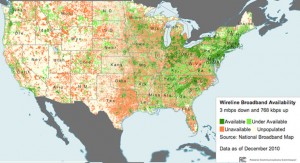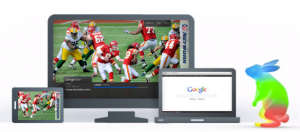
For those of used to downloading apps in seconds or streaming video, it’s hard to imagine going back to the days of dial-up. But according to the FCC, nearly 19 million Americans currently lack access to broadband, meaning those people have access only to dial-up — or nothing at all.
Enter the FCC’s “Connect America Fund,” which announced last week that they will bring highspeed to nearly 400,000 residents within the next three years. This is part of a larger initiative to bring broadband to 7 million Americans in the next six years, an aggressive target set by the Obama administration as part of its commitment to universal broadband service.
The Connect America Fund is essentially a revamped version of something called the Universal Service Fund, which was tasked with bringing affordable nationwide telephone service to rural and high-cost areas. The USF will be phased out by 2018, as the FCC concentrates resources on broadband access through Connect America.
Given that more and more of purchasing, both of goods (Amazon) and services (Netflix) is moving online, broadband access has the potential to deliver new customers to thousands of businesses. And it also opens up the innovation economy, both in terms of education and entrepreneurship, to people previously excluded from our evolution to a connected, digital society.
